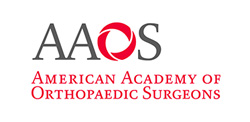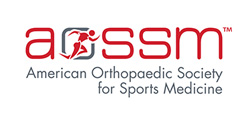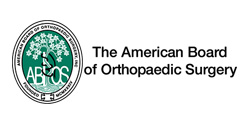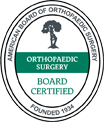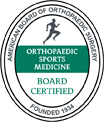
Are you experiencing a pain or stiffness in your shoulder when performing daily tasks? If you have been dealing with this frustrating condition, then don’t wait! You will want to visit an orthopedic specialist sooner than later. Frozen shoulder, or in medical terms, “adhesive capsulitis”, is a condition that causes loss of motion in the shoulder joint. When the ligaments in the shoulder become inflamed, thick bands of adhesions can develop and lead to a “frozen shoulder.”
Frozen shoulder largely affects men and women age 35-50 and occurs with no major injury. The exact cause is not known; however, periods of immobilization can contribute to the onset. Frozen shoulder can last longer than a year, especially if not treated early. If you catch frozen shoulder early, medical usually dramatically reduces symptoms and the duration of the disease process.
Three stages and symptoms of frozen shoulder include:
- Stage 1: Freezing: Shoulder pain begins and stiffness starts to set in. This stage usually lasts from 2-9 months
- Stage 2: Frozen: Shoulder pain usually subsides but lack of mobility becomes worse. This stage typically lasts anywhere between 4 months to one year.
- Stage 3: Thawing: Mobility slowing returns but can take up to 2-3 years in some cases.
Frozen shoulder can go away on its own without treatment, however, it is usually a 2-3 year recovery without treatment and can lead to unfavorable outcomes.
Timely diagnosis and treatment of frozen shoulder is crucial for many reasons:
- Joint deterioration- constant inflammation, and lack of use can cause the joint to deteriorate over time.
- Muscle Atrophy: When muscles aren’t used regularly they will waste away. Shoulder pain and stiffness lead to decreased use of the arm which ultimately causes muscle deterioration.
- Decreased activity: People who are in pain usually live a less active lifestyle. A sedentary lifestyle can lead to many health issues.
- Constant inflammation: Long-term inflammation can cause damage to healthy cells and tissues.
- Injury to other body parts: When we experience pain, the body naturally responds by making adjustments. Many times we can cause injury to other body parts by overcompensating for an injury.
If you have been suffering from any of the symptoms of frozen shoulder, make an appointment with your healthcare provider. After a thorough evaluation and possibly an X-ray or MRI scan, your doctor can provide you with an accurate diagnosis. If you are diagnosed with frozen shoulder your doctor can create a specific treatment plan for you.
Treatment of frozen should usually include:
- Physical therapy
- NSAIDs
- Cortisone injections
- Daily exercises
- Activity modifications
- Ice/Heat Therapy
More often than not, frozen shoulder usually responds quite well to non-surgical treatments. If your pain or stiffness is not improving despite the prescribed efforts of your physician, surgery may be the next step. With advancements in orthopedic medicine, many surgeons perform shoulder surgery arthroscopically, which is much less invasive than traditional surgeries. If you are suffering from symptoms of frozen shoulder, don't delay. Give us a call and schedule an appointment today! Dr. DiGiuliohas extensive knowledge of the shoulder anatomy and through the use of a personalized treatment plan can get you back to your active lifestyle in no time.
Milan M. DiGiulio, M.D. offers comprehensive orthopedic care for you and your entire family, specializing in Sports Medicine and arthroscopic surgery of the shoulder and knee. Dr. DiGiulio performs over 200 arthroscopic shoulder and knee surgeries each year, using the most advanced surgical technology. Dr. DiGiulio is an advocate of non-invasive, non-surgical treatment options such as Physical Therapy and Orthobiologics.




